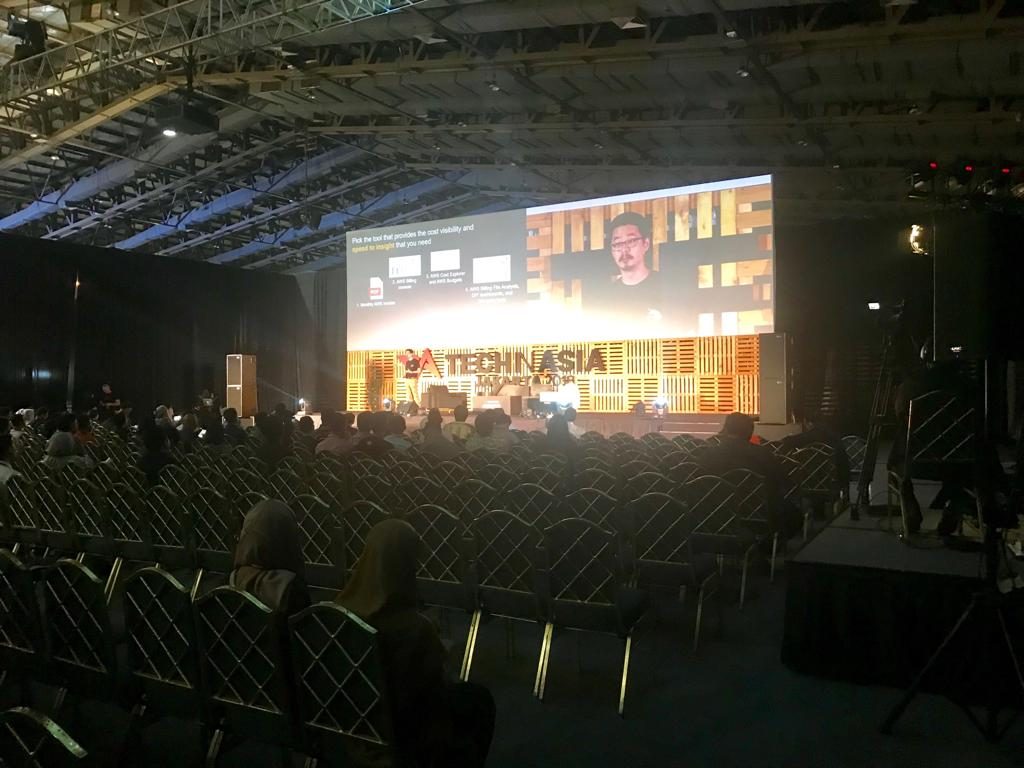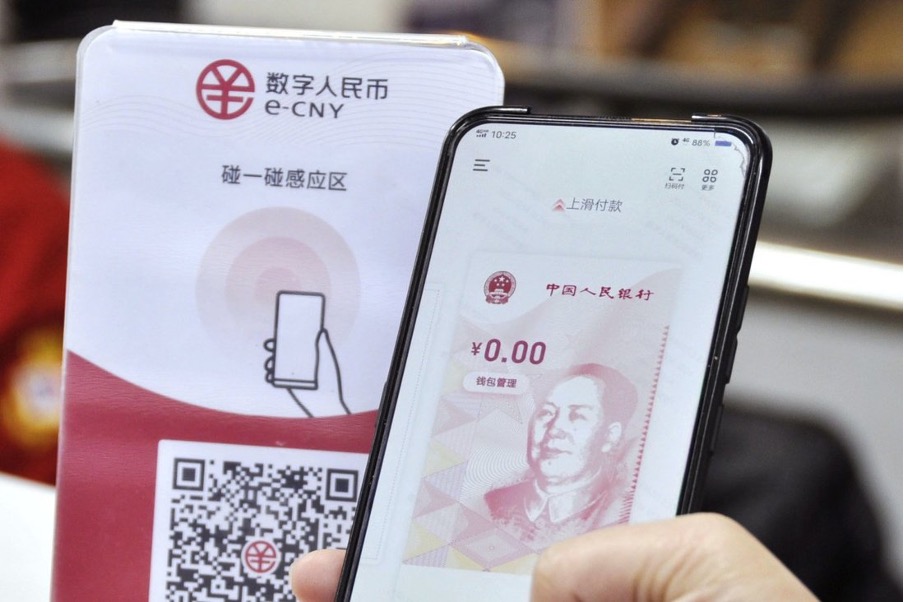On counting our blessings and tech start-up investing
On counting our blessings and tech start-up investing


Counting our blessings
One day in San Francisco, a rare taxi trip took an interesting turn. If I had not spoken to the cab driver, a Russian man, I would not have heard his captivating story.
He was one of many who were attracted to the idea of moving to America, the land of opportunity. In the year 2000, he was so convinced that Russia was a lost cause, that he left his prestigious job as a pilot in Russia and took his wife and 14-year-old son to the USA to pursue his lifelong dream of becoming a computer programmer.
The second he stepped foot on ‘the land of the free’, he took a coding class at a local college. Because of his limited ability to speak English, he became a taxi driver to earn some money in the meantime.
Unfortunately for him, by the time he graduated college in 2001, the dot-com bubble had burst. Even if he had other skills, the prospects for a 40-year-old newly graduated programmer looked unattractive when other choices were abundant.
As the sole breadwinner, he had no choice but to continue driving taxis. To this day.
This man has every reason to feel as if the world is unfairly against him.
Firstly, because now, after experiencing first-hand the dot-com bubble burst, the taxi industry is being challenged by services such as Uber and Lyft. He estimated 40K Uber and Lyft cars compared to 2K taxis available in SF.
Secondly, he left his prestigious position as a pilot, and must work long hours driving a cab.
Thirdly, many of his friends who remained in Russia are doing very well. He probably felt guilt and regret leaving Russia just to face major changes in the industries that he has been working in.
But this man is a happy chatty one. Instead of focusing on what went wrong, he focuses on what went right in his life.
Apparently, his son inherited his interest in coding. His son graduated from a coding school and now works at a tech company in Palo Alto, as an engineer.
There is no trace of bitterness from this man, even when telling me about his successful friends in Russia. Rather he is grateful for his son’s opportunities.
We can choose to be happy or not by focusing on counting our blessings instead of focusing on the ‘mistakes we made in life’.
The choice is ours and I want to start counting my blessings again.
Tech start-up, prepared for a wild ride?
We recently attended two (separate) start-up events in Jakarta and were amazed by the enthusiasm and energy of the start-up participants.
In contrast to just a few years ago when Heyokha started, hope and optimism now abound. Simply hard not to share the buoyancy as the young (and not so young too) talents are encouraged by the success of Gojek, Traveloka, Tokopedia, and Bukalapak. Some brave souls even decided to sell their businesses to fund their start-ups’ dreams and ideas.
We are obviously very pleased to see the development on the ground in the tech space in Indonesia. Nevertheless, many start-up founders seem to have the idea that the tsunami of money to fund start-up ideas will go on forever.
At one of the events, we noticed a lack of enthusiasm at the ‘How to control your tech expenses” presentation and overwhelming enthusiasm at the “Road to IPO” presentation. While we respect many founders’ shoot-for-the-moon attitude, we also think the startup’s “less exciting” aspects, such as managing expenses, are just as important.

One obvious challenge for the start-up industry is the extreme volatility as described by the story of the Russian cab driver above. This volatility will only be exacerbated by the ongoing reversal of the wall of money from the world’s central banks.
One fine example of how liquidity factors affect tech valuations is the case of Sea Limited (SE US). Sea is the only listed tech play in Southeast Asia with two significant business arms: Garena, a game publisher/developer and Shopee, an e-commerce platform.
Sea’s market cap at the moment is only US$ 3.9bn, which is close to Garena’s (before they rebranded to Sea Limited and Shopee was only a tiny part of the total business) Series D in 2016 (US$3.75bn). This means that the market is not attaching any value to its e-commerce business, Shopee. If we were to value Garena at 15x EV/EBITDA (a slight discount to NetEase), Garena alone would be worth US$ 4.4bn which means Shopee valuation would be negative –US$300mn!
Meanwhile, Indonesia’s leading e-commerce company, Tokopedia recently raised funding at a US$ 7bn valuation. If we were to use the same multiple which is approximately 1x EV-to-GMV, Shopee alone would be valued at US$ 10bn. We are not advocating that one or the other is mispriced, rather highlighting that the huge difference in valuations is largely attributable to a difference in liquidity in the private and public market at this point in time.
We are also not forecasting a tech sector reckoning to follow in the private tech space, but simply want to remind ourselves that it is not always sunshine and rainbows in the tech start-up world. The life of the Russian taxi driver in San Francisco above bears testament to life in tech. Count our blessings but be prepared for the worst.
Admin heyokha
Share
Counting our blessings
One day in San Francisco, a rare taxi trip took an interesting turn. If I had not spoken to the cab driver, a Russian man, I would not have heard his captivating story.
He was one of many who were attracted to the idea of moving to America, the land of opportunity. In the year 2000, he was so convinced that Russia was a lost cause, that he left his prestigious job as a pilot in Russia and took his wife and 14-year-old son to the USA to pursue his lifelong dream of becoming a computer programmer.
The second he stepped foot on ‘the land of the free’, he took a coding class at a local college. Because of his limited ability to speak English, he became a taxi driver to earn some money in the meantime.
Unfortunately for him, by the time he graduated college in 2001, the dot-com bubble had burst. Even if he had other skills, the prospects for a 40-year-old newly graduated programmer looked unattractive when other choices were abundant.
As the sole breadwinner, he had no choice but to continue driving taxis. To this day.
This man has every reason to feel as if the world is unfairly against him.
Firstly, because now, after experiencing first-hand the dot-com bubble burst, the taxi industry is being challenged by services such as Uber and Lyft. He estimated 40K Uber and Lyft cars compared to 2K taxis available in SF.
Secondly, he left his prestigious position as a pilot, and must work long hours driving a cab.
Thirdly, many of his friends who remained in Russia are doing very well. He probably felt guilt and regret leaving Russia just to face major changes in the industries that he has been working in.
But this man is a happy chatty one. Instead of focusing on what went wrong, he focuses on what went right in his life.
Apparently, his son inherited his interest in coding. His son graduated from a coding school and now works at a tech company in Palo Alto, as an engineer.
There is no trace of bitterness from this man, even when telling me about his successful friends in Russia. Rather he is grateful for his son’s opportunities.
We can choose to be happy or not by focusing on counting our blessings instead of focusing on the ‘mistakes we made in life’.
The choice is ours and I want to start counting my blessings again.
Tech start-up, prepared for a wild ride?
We recently attended two (separate) start-up events in Jakarta and were amazed by the enthusiasm and energy of the start-up participants.
In contrast to just a few years ago when Heyokha started, hope and optimism now abound. Simply hard not to share the buoyancy as the young (and not so young too) talents are encouraged by the success of Gojek, Traveloka, Tokopedia, and Bukalapak. Some brave souls even decided to sell their businesses to fund their start-ups’ dreams and ideas.
We are obviously very pleased to see the development on the ground in the tech space in Indonesia. Nevertheless, many start-up founders seem to have the idea that the tsunami of money to fund start-up ideas will go on forever.
At one of the events, we noticed a lack of enthusiasm at the ‘How to control your tech expenses” presentation and overwhelming enthusiasm at the “Road to IPO” presentation. While we respect many founders’ shoot-for-the-moon attitude, we also think the startup’s “less exciting” aspects, such as managing expenses, are just as important.

One obvious challenge for the start-up industry is the extreme volatility as described by the story of the Russian cab driver above. This volatility will only be exacerbated by the ongoing reversal of the wall of money from the world’s central banks.
One fine example of how liquidity factors affect tech valuations is the case of Sea Limited (SE US). Sea is the only listed tech play in Southeast Asia with two significant business arms: Garena, a game publisher/developer and Shopee, an e-commerce platform.
Sea’s market cap at the moment is only US$ 3.9bn, which is close to Garena’s (before they rebranded to Sea Limited and Shopee was only a tiny part of the total business) Series D in 2016 (US$3.75bn). This means that the market is not attaching any value to its e-commerce business, Shopee. If we were to value Garena at 15x EV/EBITDA (a slight discount to NetEase), Garena alone would be worth US$ 4.4bn which means Shopee valuation would be negative –US$300mn!
Meanwhile, Indonesia’s leading e-commerce company, Tokopedia recently raised funding at a US$ 7bn valuation. If we were to use the same multiple which is approximately 1x EV-to-GMV, Shopee alone would be valued at US$ 10bn. We are not advocating that one or the other is mispriced, rather highlighting that the huge difference in valuations is largely attributable to a difference in liquidity in the private and public market at this point in time.
We are also not forecasting a tech sector reckoning to follow in the private tech space, but simply want to remind ourselves that it is not always sunshine and rainbows in the tech start-up world. The life of the Russian taxi driver in San Francisco above bears testament to life in tech. Count our blessings but be prepared for the worst.
Admin heyokha
Share














